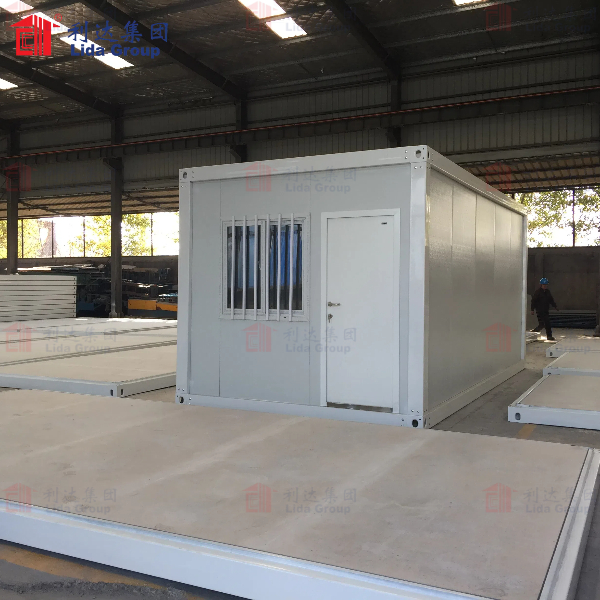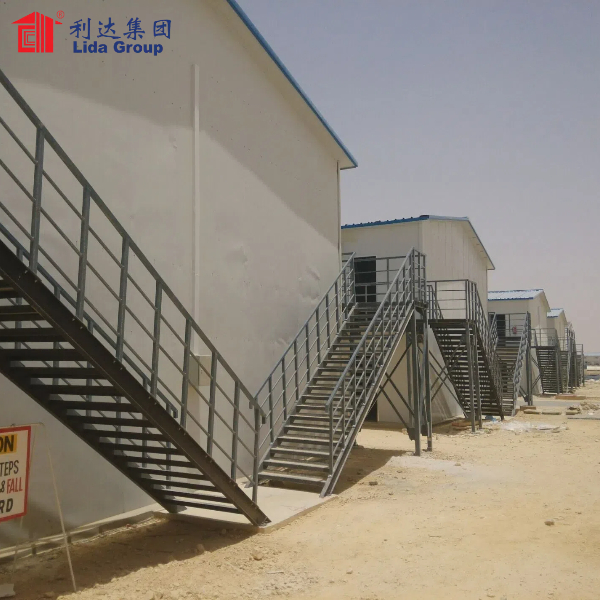As the world grapples with rapid urbanization, rising housing costs, and the urgent need for sustainable living solutions, modular housing has emerged as a transformative alternative in the construction industry. Lida Group, a leader in the development of modular houses, is at the forefront of this movement, providing innovative, cost-effective, and environmentally friendly housing solutions. This article delves into the features, benefits, and future prospects of Lida Group’s modular houses, illustrating why they represent the future of housing.
Understanding Modular Housing
What is Modular Housing?
Modular housing refers to structures that are prefabricated in sections, or modules, in a factory setting before being transported to the construction site for assembly. Unlike traditional construction methods, which often involve building from the ground up on-site, modular homes are constructed off-site, which significantly reduces construction time and labor costs.
The Process of Modular Construction
The modular construction process typically involves several key stages:
- Design: Clients collaborate with architects and designers to create customized plans that meet their specific needs and preferences.
- Prefabrication: The approved designs are then manufactured in a controlled factory environment, where quality can be meticulously monitored. Each module is built with precision, incorporating all necessary components such as plumbing, electrical systems, and insulation.
- Transportation: Once completed, the modules are transported to the designated building site.
- Assembly: On-site, the modules are assembled according to the predetermined design, resulting in a fully functional home.
- Finishing Touches: Final inspections and finishing work are completed, allowing residents to move in quickly.
Key Features of Lida Group’s Modular Houses
1. Customization
One of the most significant advantages of Lida Group’s modular houses is their customization potential. Clients have the flexibility to choose layouts, materials, and finishes that align with their aesthetic preferences and functional requirements. This level of customization allows homeowners to create spaces that truly reflect their lifestyles.
2. Speed of Construction
Lida Group’s modular homes can be constructed in a fraction of the time required for traditional homes. While conventional construction can take several months to complete, modular homes can often be ready for occupancy within a few weeks. This speed not only benefits homeowners but also helps address urgent housing shortages in various regions.
3. Cost-Effectiveness
Modular houses by Lida Group are typically more affordable than traditional homes. The factory-based construction process leads to reduced labor costs, less material waste, and lower overall expenses. Additionally, the speed of construction can result in significant savings on financing costs.
4. Sustainability
Lida Group is committed to sustainability, and modular houses are designed with eco-friendly principles in mind. The use of energy-efficient materials, advanced insulation techniques, and renewable energy options significantly reduces the carbon footprint of these homes. Moreover, the controlled factory environment minimizes waste and promotes recycling.
5. Durability and Quality
Modular houses are built to withstand harsh weather conditions, making them a durable choice for various climates. Lida Group employs high-quality materials and strict quality control measures during the manufacturing process, ensuring that each home meets rigorous safety and durability standards.
Benefits of Lida Group’s Modular Houses
1. Addressing Housing Shortages
As urban populations continue to grow, the demand for affordable housing is more pressing than ever. Lida Group’s modular houses provide a viable solution to this challenge, offering a quick and efficient way to build homes in high-demand areas. By reducing construction time and costs, these homes can help alleviate housing shortages in urban centers.
2. Flexibility for Various Needs
Modular houses are versatile and can be adapted for various uses. Whether for single-family homes, multi-family units, or temporary housing solutions such as labor camps or emergency shelters, Lida Group’s modular designs can meet diverse housing needs.
3. Improved Living Conditions
The design and construction methods used in Lida Group’s modular houses prioritize comfort and functionality. With open floor plans, modern amenities, and customizable layouts, these homes are designed to enhance the quality of life for residents. Additionally, energy-efficient features contribute to lower utility bills and a healthier living environment.
4. Strong Community Development
Modular housing solutions can contribute to community development by providing affordable homes that allow families to settle in desirable areas. Lida Group’s commitment to building quality homes helps foster stable communities, promoting social cohesion and economic growth.
Case Studies: Successful Implementations of Lida Group’s Modular Houses
1. Urban Housing Development
In response to a growing housing crisis in a metropolitan area, Lida Group partnered with local authorities to develop a modular housing project. The initiative involved constructing several dozen modular homes designed to accommodate low-income families. The project was completed within a few months, providing much-needed housing while maintaining affordability.
2. Labor Camp Solutions
Lida Group has successfully implemented modular housing solutions for labor camps. These projects provide comfortable and efficient accommodations for workers in remote areas, ensuring they have access to essential amenities. The modular design allows for quick assembly and disassembly, making it ideal for temporary housing needs.
3. Eco-Friendly Communities
Lida Group has also ventured into eco-friendly modular communities, where sustainable practices are integrated into the design and construction processes. These communities feature energy-efficient homes, green spaces, and shared amenities that promote a sustainable lifestyle. Residents benefit from lower energy costs and a strong sense of community.
The Future of Modular Housing
1. Technological Advancements
The future of modular housing is closely tied to technological advancements. Innovations such as Building Information Modeling (BIM), robotics in construction, and smart home technologies are expected to enhance the efficiency and appeal of modular homes. Lida Group is actively exploring these technologies to improve design and construction processes.
2. Increased Demand for Sustainable Solutions
As awareness of environmental issues grows, the demand for sustainable housing solutions will continue to rise. Lida Group’s commitment to eco-friendly practices positions it well for future success in the modular housing market. The integration of renewable energy sources, such as solar panels, will further enhance the sustainability of their homes.
3. Global Expansion
Lida Group’s modular houses are not limited to specific regions; their versatility allows for global application. As countries around the world grapple with housing shortages, Lida Group is poised to expand its reach, offering modular solutions to meet the diverse needs of various markets.
4. Community-Centric Designs
Future modular housing projects are likely to focus on community-centric designs that foster social interaction and inclusivity. Lida Group aims to create neighborhoods that promote a sense of belonging, with shared spaces and amenities that enhance the quality of life for residents.
Challenges and Considerations
While modular housing presents numerous benefits, there are challenges and considerations to address:
1. Perceptions and Misconceptions
Despite the advantages, modular housing often faces stigma and misconceptions regarding quality and aesthetics. Educating the public about the benefits and quality of modular homes is essential for widespread acceptance.
2. Zoning and Regulatory Hurdles
Navigating zoning laws and building regulations can be complex, particularly in urban areas. Lida Group will need to work closely with local authorities to ensure compliance and facilitate the approval process for modular projects.
3. Market Competition
As the modular housing market grows, competition is expected to increase. Lida Group must continue to innovate and differentiate itself through quality, design, and sustainability to maintain its leadership position.
Conclusion
Lida Group’s modular houses represent a forward-thinking solution to some of the most pressing housing challenges of our time. With their emphasis on customization, cost-effectiveness, sustainability, and speed of construction, these homes are poised to redefine the future of housing.
As urbanization continues to rise and the demand for affordable housing increases, modular solutions will play a crucial role in addressing these challenges. Lida Group’s commitment to quality and innovation ensures that its modular houses will not only meet the needs of today’s residents but also pave the way for a sustainable and inclusive future.
In a world where adaptability and efficiency are paramount, investing in modular housing is not just a choice; it’s a strategic move toward a brighter, more sustainable future. Lida Group stands ready to lead the way, creating innovative housing solutions that cater to the diverse needs of communities around the globe.
Contact Us
Post time: Jan-17-2025


